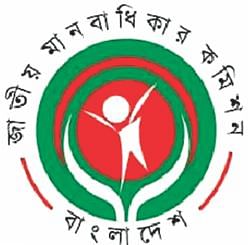LET'S COMPLAIN to the NHRC
LET'S COMPLAIN to the NHRC

ANY person or organisation can bring allegation regarding any violation of human rights to the National Human Rights Commission (NHRC). Hence every human is entitled and have equal access to the NHRC irrespective of his/her race, sex, gender, religion, ethnicity, place of birth, literacy, ability etc. Moreover, NHRC has power to take action suo motu against any such violation. It can even take allegation from news of media. However, there is a distinction between crime and human rights violation. All crimes are not human rights violation; a crime would be an infringement of human rights when it happened by state mechanism or when state is being failed to prevent such violation.
Against whom allegation may be brought: Any person or organisation may be liable for violation of human rights and a complainant may bring accusation against one or more to the NHRC. In this regard his/her designation, identity, cast, financial ability will not be barrier to prosecute the violator. Mere involvement with the incident is sufficient to file complaint. Even any Government post holder or any organisation could be responsible for infringement of human rights if s/he abets or provokes to the violence.
Procedure to bring allegation: A complainant can file complaint through application addressing the chairman of the commission on prescribed from (available on www.nhrc.org.bd) or on white paper and can submit through post or personally. Even email (nhrc.bd@gmail.com) is sufficient to file a complaint.
In that case s/he will receive a complain number after sending the complaint and can use that number for further reference. Also the applicant would be able to know about the status of his/her complaint by using that number.
In the application, s/he need to write the name and address of the complainant; name and address of the victim (if the person is different from the complainant); reason to complain/reason to apprehend; nature of violation, gravity of offence; date, time and place of occurrence; present condition of the victim; name and address of the suspects (if identified); description of the violators (if not identified); designation and office of the violator (in case of govt. employee); any action taken by the law enforcement agencies/govt.; proof of allegation (if any) etc.
There is a selection committee in the NHRC to scrutiny the legal aspects of the allegation within 24 hours. If it finds that the allegation is beyond their jurisdiction then they will write the reason and contact with the complainant within three days from the date of receiving the application. In that case they also advice him/her about his/her required steps to get redress. Moreover, they may assist and provide essential legal supports and fess to conduct the case.
Power and function of Commission: The commission has power to summon and interrogate any person, take evidence after oath, inspect any document and can conduct necessary inquiry. Moreover the commission can mediate the matter between the victim and the alleged perpetrators. If the initiative is failed, then it can recommend to the concern authority to lodge a case against the violator. In addition, it can recommend taking such necessary steps to prevent these types of violation and to provide compensation to the victim.
However, NHRC cannot take any matter in their authority in case of a matter pending before a court of law. In addition, it cannot entertain any matter of a public servant which can be tried under the Administrative Tribunals Act, 1980.
One may file the complaint without disclosing his/her identity and in that circumstance the commission will keep the matter confidential. If one feel any risk of security after lodging the complaint s/he can inform it to the commission and commission will order the law enforcers to provide sufficient security.
The writer is a Senior Lecturer of Law, Dhaka International University (Diu).